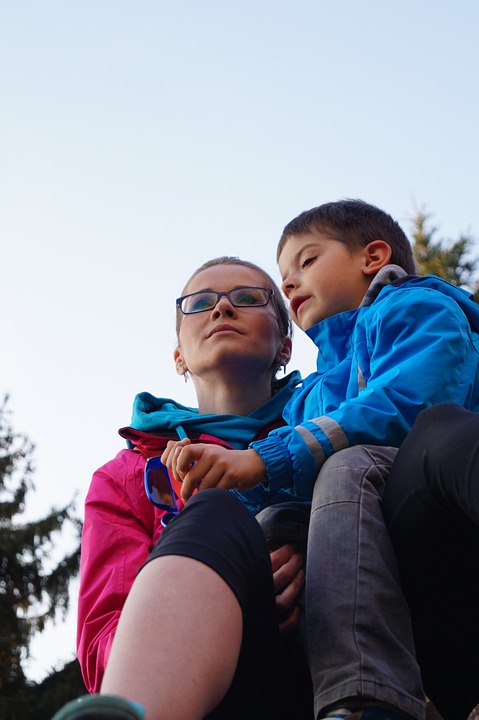Depression has many manifestations that can directly impact your kids both in and out of the womb. While depression in parents isn’t something that pediatric practitioners typically take care of, we are often the first medical professionals to see parents post-birth at their babies’ Well Visits. Your well being directly contributes to your infant’s health and development, so pediatric practitioners think about parents, too!
Children of Depressed Parents
Firstly, we know that depression in parents at many stages of child development can lead to cognitive, behavioral, and academic development problems. Children of depressed parents can have a range of developmental, behavioral, emotional, mental and social problems of varying severity.
According to a March 2016 Swedish study, “Both maternal depression and paternal depression at different periods (before birth, after birth, and during child ages 1-5, 6-10, and 11-16 years) generally were associated with worse school performance.” The study found that parental depression diagnoses were linked with poor school performance in 16-year olds.
Postpartum Depression
There are varying degrees of postpartum mood disorders: postpartum blues, postpartum psychoses, and postpartum depression. Postpartum depression occurs in approximately 13% of women. Most women with postpartum mood disorders report feelings of sadness, anxiety, and exhaustion. As a result, this disorder can make everyday activities difficult for women, including caring for their babies.
Symptoms of Postpartum Depression
- Marital relationship disruption
- Low self-esteem
- Impaired social and occupational function
- Poor quality of life
- Maternal withdrawal and/or disengagement
- Hostility towards infant
- Feelings of intrusion
- Poor cognitive function
- Emotional maladjustment in infants and children
Women experiencing postpartum depression are not bad mothers, first and foremost. You can do some things at home to help with your depression symptoms. Firstly, you can try breastfeeding your baby. This can help strengthen your bond with your baby and give you a positive action you can try. If you are having breastfeeding difficulty, seek lactation support. Here at GHT, we have a couple of resources that can help you with your breastfeeding woes.
In addition, try to find a group of parents to spend time with. There is likely a community of people who are going through something similar. However, if these things are difficult, you can always reach out through your insurance to find mental health services that are within your network.
Antidepressants and Pregnancy
Some studies show that antidepressant use during pregnancy may increase the risk of Autism Spectrum Disorder (ASD) in children. Other studies found that there aren’t any major developmental risks to the fetus and the benefit of treating depression outweighs the risk of the fetus. As with all things, you should educate yourself and speak to your practitioner in order to make the best decisions for yourself and your family.
Adult Treatment of Depression
- Pharmacotherapy
- Family therapy
- Psychotherapy
- Complimentary or Alternative therapy
- Social support
You First
Depression has a number of possible risks to your child, so it’s important to put your health as a first priority. Let this be your new life mantra: you first. Your personal health directly impacts the health of your family. Your health is essential to the health of your child.
For example, when you are on an airplane, you are always told to put your own oxygen mask on before you help your child. As cliche as that is, it also happens to be true! If you aren’t caring for yourself, how can you care for your child?
Call your insurance to find out which services are within your network. You don’t need your primary healthcare practitioner to refer you to someone. You can go ahead and get the services you need as soon as possible.
In conclusion, for questions or comments, respond to this post or contact us! We look forward to hearing from you!




